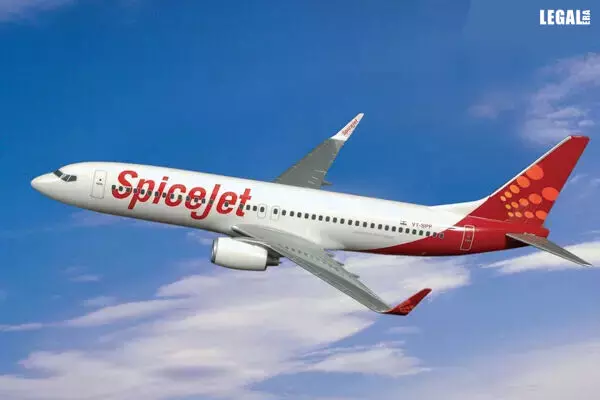- Home
- News
- Articles+
- Aerospace
- AI
- Agriculture
- Alternate Dispute Resolution
- Arbitration & Mediation
- Banking and Finance
- Bankruptcy
- Book Review
- Bribery & Corruption
- Commercial Litigation
- Competition Law
- Conference Reports
- Consumer Products
- Contract
- Corporate Governance
- Corporate Law
- Covid-19
- Cryptocurrency
- Cybersecurity
- Data Protection
- Defence
- Digital Economy
- E-commerce
- Employment Law
- Energy and Natural Resources
- Entertainment and Sports Law
- Environmental Law
- ESG
- FDI
- Food and Beverage
- Gaming
- Health Care
- IBC Diaries
- In Focus
- Inclusion & Diversity
- Insurance Law
- Intellectual Property
- International Law
- IP & Tech Era
- Know the Law
- Labour Laws
- Law & Policy and Regulation
- Litigation
- Litigation Funding
- Manufacturing
- Mergers & Acquisitions
- NFTs
- Privacy
- Private Equity
- Project Finance
- Real Estate
- Risk and Compliance
- Student Corner
- Take On Board
- Tax
- Technology Media and Telecom
- Tributes
- Viewpoint
- Zoom In
- Law Firms
- In-House
- Rankings
- E-Magazine
- Legal Era TV
- Events
- News
- Articles
- Aerospace
- AI
- Agriculture
- Alternate Dispute Resolution
- Arbitration & Mediation
- Banking and Finance
- Bankruptcy
- Book Review
- Bribery & Corruption
- Commercial Litigation
- Competition Law
- Conference Reports
- Consumer Products
- Contract
- Corporate Governance
- Corporate Law
- Covid-19
- Cryptocurrency
- Cybersecurity
- Data Protection
- Defence
- Digital Economy
- E-commerce
- Employment Law
- Energy and Natural Resources
- Entertainment and Sports Law
- Environmental Law
- ESG
- FDI
- Food and Beverage
- Gaming
- Health Care
- IBC Diaries
- In Focus
- Inclusion & Diversity
- Insurance Law
- Intellectual Property
- International Law
- IP & Tech Era
- Know the Law
- Labour Laws
- Law & Policy and Regulation
- Litigation
- Litigation Funding
- Manufacturing
- Mergers & Acquisitions
- NFTs
- Privacy
- Private Equity
- Project Finance
- Real Estate
- Risk and Compliance
- Student Corner
- Take On Board
- Tax
- Technology Media and Telecom
- Tributes
- Viewpoint
- Zoom In
- Law Firms
- In-House
- Rankings
- E-Magazine
- Legal Era TV
- Events
Spicejet and Ajay Singh approach Delhi High Court against tribunal’s order to pay over Rs.270 crores to Kalanithi Maran

Spicejet and Ajay Singh approach Delhi High Court against tribunal’s order to pay over Rs.270 crores to Kalanithi Maran
The dispute between the two entities had begun in January 2015
SpiceJet and its chairman and managing director Ajay Singh have appealed before the Delhi High Court against a single-Judge order directing them to refund over Rs.270 crores to the Sun Group promoter Kalanithi Maran.
The dispute between the low-cost airline and Maran began when Singh, who used to own SpiceJet before Maran, bought it back from him in January 2015.
Maran had transferred his 58.46 percent stake in the airline to Singh. As per the deal, Maran was supposed to get redeemable warrants in return for the money invested by him during his tenure as a promoter of the airline. He was liable to get 18 crore warrants, which translated to 26 percent of shareholding in SpiceJet.
However, Maran said that neither the convertible warrants nor the preference shares were issued to him, and he did not get any money. Claiming to suffer damages worth Rs.1,323 crores, he approached the High Court, which referred the matter to arbitration.
In July 2018, the arbitral tribunal ordered SpiceJet to refund Rs.270 crores to Maran. It directed the airline to pay a 12 percent per annum interest on the amount paid towards warrants and 18 percent per annum on the sum if the money was not paid on time to Maran.
However, the tribunal observed there was no breach of the share sale and purchase agreement reached between Spicejet, Ajay Singh, and Maran. Thus, it rejected Maran's demands for restitution of his shareholding and the damages claim.
Thereafter, against the order of the arbitral tribunal, Maran, his company KAL Airways, and SpiceJet and Ajay Singh, filed petitions before the Court.
On 31 July 2023, Justice Chandra Dhari Singh ordered Spicejet to pay the refund to Maran. It held that the low-cost carrier failed to prove that the tribunal's order suffered from any illegality.
The Bench ruled, "There is nothing in the impugned award to suggest that it suffers from patent illegality and the findings therein are perverse and will shock the conscience of this Court. The petitioners have not been able to prove that the impugned arbitral award is patently illegal, against the public policy of India or the fundamental policy of the law. Thus, they have failed to make out a case for the award to be set aside.”
The Judge also rejected Maran's plea against the tribunal’s order. He rejected restitution of his 58.46 percent shareholding in SpiceJet and claim for damages. The Bench stated that the appeals were beyond the scope of Section 34 of the Arbitration and Conciliation (A&C) Act, 1996, under which the pleas were filed by Spicejet and Maran.
It compelled Maran to plead for setting aside the order to the extent that it allowed SpiceJet's counter-claim of Rs.100 crore plus interest. However, this request was also turned down by the Court.


